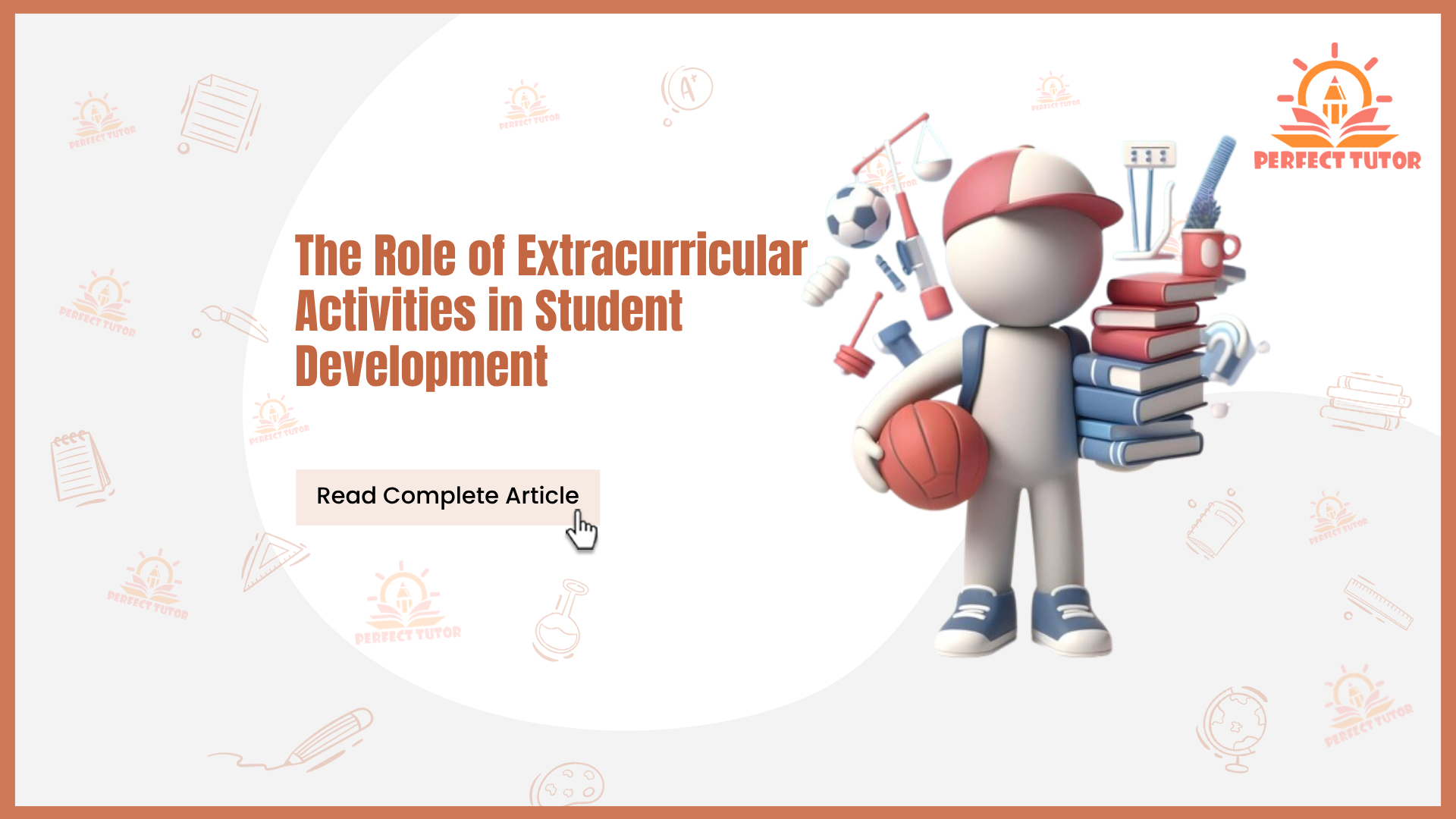The Role of Extracurricular Activities in Student Development
Learning is not just about books, exams, and classroom lessons. To become a confident and capable person, a student needs more than academic knowledge. This is where extracurricular activities play a major role. These are activities that students participate in outside of regular classes, such as sports, dance, music, debating, painting, and many others.
Some people believe that extracurricular activities are just for joy or to pass the time. However, they are very important for a student's overall development. They help students develop into confident, creative, and disciplined individuals. This article aims to help students, parents, and teachers understand why extracurricular activities are so valuable. It explains how they improve personality, academic skills, mental health, and even future career opportunities. If you've ever wondered if these activities are really important, this article will provide clear answers.
What are extracurricular activities?
Extracurricular activities are activities that students participate in outside of their regular school subjects. They are not part of the curriculum, but they help students develop valuable skills and attributes.
Some popular extracurricular activities are:
Sports such as football, cricket, badminton, and basketball
Arts such as painting, music, dance, theatre, and photography
Rhetorical activities such as debates, storytelling, and speeches
Club Participation in science, math, programming, or environmental clubs
Community service, such as helping with social work or charity events
Hobbies such as gardening, cooking, writing, and programming
These activities offer students the opportunity to explore their interests and develop new talents. They also bring joy and excitement to the school day and make learning more enjoyable.
Why are extracurricular activities important?
Extracurricular activities help students grow in many ways, not just academically. They develop important life skills that are useful in everyday life and later in their careers.
Personal development
Students who participate in extracurricular activities become more self-confident. They learn how to express themselves, solve problems, and take responsibility. For example, giving a speech or performing in a dance competition helps students to overcome fears and develop courage.
Social skills
Group activities such as team sports or school projects teach students how to interact with others. They learn to listen, respect other opinions, and work together. These skills help them at school, at work, and in other life situations.
Time management
By balancing studies and extracurricular activities, students learn to manage their time wisely. They learn to set priorities, complete tasks on time, and take responsibility.
Mental well-being
Activities that are fun for students reduce stress and make them happy. When students participate in fun activities, they feel relaxed and refreshed. These activities also help to reduce anxiety and boredom.
How extracurricular activities improve academic performance
Some parents worry that extracurricular activities may distract students from learning. However, research shows that students who participate in extracurricular activities often perform better academically.
Here’s why:
Activities improve concentration, memory, and discipline
Students are more motivated and have more energy to learn
Breaks from learning help reduce mental fatigue
Self-confidence gained through activities helps with learning
Skills such as problem solving, reading, and writing improve
For example, a student who plays chess regularly will develop better logical thinking, which helps in math. Similarly, a student involved in drama or debate will improve communication and language skills.
How to choose the right extracurricular activity
Not every student enjoys the same activities. Some like outdoor activities, while others prefer quiet hobbies. Choosing the right extracurricular activity depends on the student’s interests and goals.
Here are some helpful tips:
Try out different activities before deciding on the best one
Follow personal interests instead of copying friends
Choose activities that bring happiness, not just awards
Avoid activities that cause stress or take too much time to learn
It’s okay to change activities if one doesn’t feel right
The goal is to enjoy learning new skills and growing as a person in the process.
Life skills acquired through extracurricular activities
Extracurricular activities teach skills that remain valuable for a lifetime. These skills go beyond the textbooks and help students develop into well-rounded individuals.
Some of the most important skills students learn are:
Leadership – Through leading a team or organizing events
Teamwork – By working with others in sports or club activities
Communication – through public speaking, debating, or artistic performance
Discipline – By participating in training sessions and taking responsibility
Problem solving – By facing challenges and finding solutions
These skills are important for future success in education and employment.
How extracurricular activities help with career development
Extracurricular activities can be very helpful in college admissions and job placements. Universities and employers prefer students who are active and competent in a variety of areas, not just academics.
Students with the following experiences, for example, have a strong profile:
Certificates from sports competitions at the national level
Leadership roles in the school, such as Head Boy or Club Captain
Participation in community service or community service
Achievements in drama, art, or debating at various levels
These activities show that the student is confident, hardworking, and able to take responsibility — qualities that are valuable in any career.
Read More - Effective Time Management Strategies For StudentsRole of Parents and Schools in Supporting Activities
Parents and schools play a major role in encouraging participation in extracurricular activities. Students should not be forced to focus only on their grades. When parents support their children’s interests, students feel more confident and motivated.
Schools also need to ensure that extracurricular activities are given equal importance. They should offer clubs, organize competitions, and assist students. Teachers should help students find a balance between studies and hobbies.
Together, parents and schools can create an environment where students enjoy learning beyond the textbooks.
Final Thoughts
Extracurricular activities are not a waste of time. They help students develop skills, confidence and a positive attitude towards learning. From improving social and academic skills to promoting mental health, the benefits are endless.
Students should be encouraged to explore their interests beyond textbooks. A child who plays, is creative, and expresses emotions learns better and grows with joy. Whether it’s sports, music, art, or debating, extracurricular activities shape students into well-rounded individuals.



 +91 8700847275
+91 8700847275
 +1 8009616567
+1 8009616567